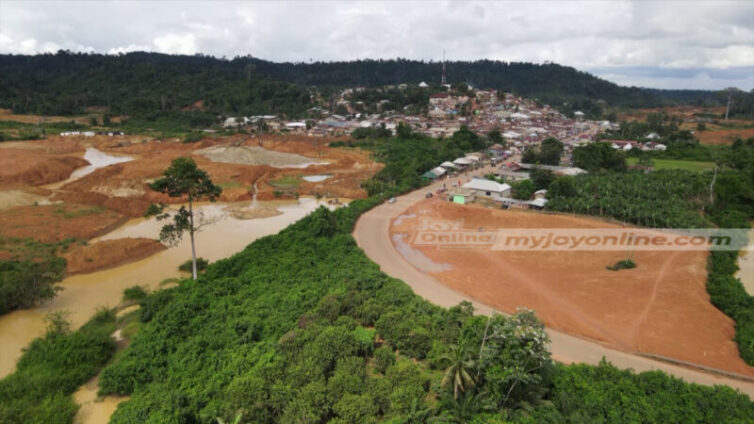Ghana has recorded the most severe decline in environmental sustainability across Africa over the past decade, according to the 2024 Ibrahim Index of African Governance (IIAG) report.
The report, which assesses governance performance across African countries on a ten-year scale, ranks countries based on their scores out of 100, with a focus on both the direction and pace of governance changes.
The Sustainable Environment sub-category, which measures factors such as Environmental Policy Enforcement, Air Quality, Sustainable Use of Land & Forests, and Biodiversity Protection, revealed significant drops in Ghana’s performance.
In 2014, Ghana scored 41.9 on sustainable land and forest use, a figure that has since dropped to 37.6—indicating a 4.3-point decline.
Land and water biodiversity protection showed an even steeper drop from 37 points in 2014 to 24 points in 2023, marking a 12.1-point decrease.

An additional indicator, Absence of Illegal Exploitation of Biodiversity, revealed a concerning decline in Ghana’s score, from 61.5 in 2014 to 25.0 in 2023—a 59.35% reduction over the decade.
“The country’s worst-ranked indicators are Sustainable Use of Land & Forests (50th) and Land & Water Biodiversity Protection (44th), leading Ghana to register the largest decline in the Sustainable Environment sub-category across the continent (-2.5 points),” the report stated.

Currently, Ghana ranks 39th out of 54 African countries in sustainable environment, with a score of -2.5 points, in stark contrast to neighboring Togo, which ranks 12th with a leading score of 20 points on the continent.

This report was published amid rising public concerns over the detrimental effects of illegal mining, or “galamsey,” on Ghana’s natural resources.
Polluted rivers, deforestation, and loss of potable water have prompted youth groups, media, labour unions, and religious organisations to rally against illegal mining activities.
Demonstrations have taken place in Accra, calling on the government to take stronger action, and labor unions have held strikes to amplify these demands.
In response, the government has deployed military and police forces to illegal mining sites, seizing equipment and arresting offenders.
Read also: Emotional vigil climaxes 3-day anti-galamsey protest as demand to #FreeTheCitizens intensifies
Parliament is also expected to address demands from recent protests to repeal the Environmental Protection (Mining in Forest Reserves) Regulation 2022 (L.I. 2462).
Ghana’s declining rank and low scores underscore the urgent need for decisive actions to tackle the illegal mining crisis and restore the nation’s environmental sustainability.
Meanwhile, President Akufo-Addo has reaffirmed his commitment to end the menace.
Latest Stories
-
Afcon exit: Our issue is administrative failure and mismanagement, not lack of talent – Saddick Adams
5 mins -
WAPCo to commence major pipeline maintenance and inspection from November 25
11 mins -
Power crisis: Amandi is off due to maintenance, not debt – ECG Boss
39 mins -
Votes cast for late Akua Donkor to be declared invalid – Electoral Commission
53 mins -
You can’t keep “incompetent” Otto Addo for the long term – Countryman Songo
1 hour -
Joy FM holds 2024 Prayer Summit for Peace
1 hour -
Lady sues Police and AG over assault in custody
2 hours -
Ghana’s railway sector has been revived under my leadership – Akufo-Addo
3 hours -
Next government must enforce C190 – Women Economic Dialogue Forum
3 hours -
NCCE engages party youth activists at Nandom on peaceful election
3 hours -
SSNIT engages stakeholders on its operations
3 hours -
Defilement: 19-year-old farmer jailed ten years, with hard labour
3 hours -
Bawumia to inaugurate new headquarters of Lands Commission on November 25
3 hours -
Sylvester Tetteh denies demolishing GBC staff bungalow
3 hours -
Signing of peace pact by presidential candidates slated for November 28
3 hours

